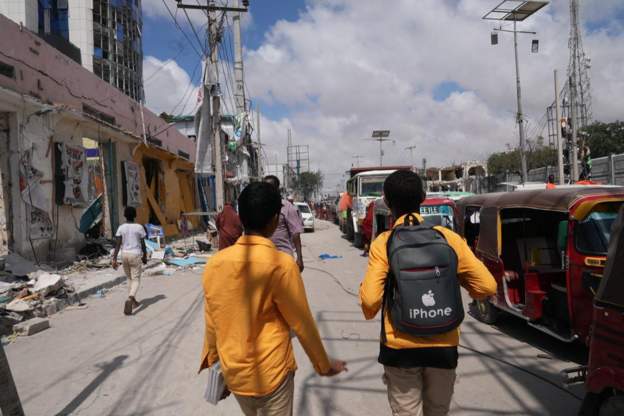Journalists, students, and traders are among the 120 people now known to have died in Saturday’s bombing in Somalia’s capital Mogadishu.
The death toll may rise further as the search for missing people continues and if the condition of some of the 300 people wounded deteriorates, said Somalia’s Health Minister Ali Haji.
The government yesterday formed a committee, led by the health minister, to coordinate the emergency response, and Kenya, Turkey, Egypt and Saudi Arabia have been asked to send doctors to help.
Somalia’s President Hassan Sheikh Mohamud, who visited the scene of the attack at the Sobe intersection, said it was similar to the country’s deadliest bombing on 14 October 2017, which killed nearly 600 people.”Such October attacks will not happen again,” President Mohamud vowed.
The country has a fragile healthcare system and its health minister says it is difficult to provide air evacuation for the hundreds of wounded individuals.
Somalia’s government launched a blood donation campaign as the few hospitals in the capital had been overwhelmed.
The country does not have a national blood bank to save lives during such a crisis, and private hospitals were charging the bombing vicims for blood transfusions.Article share tools
